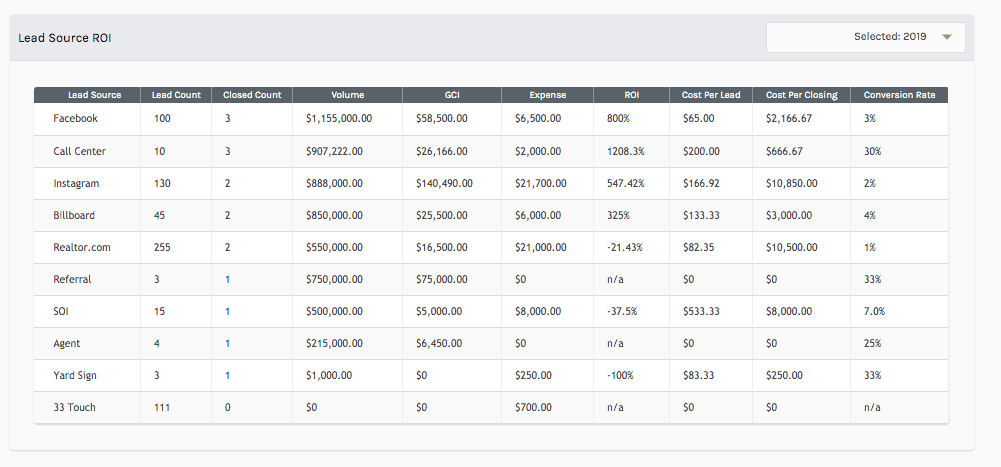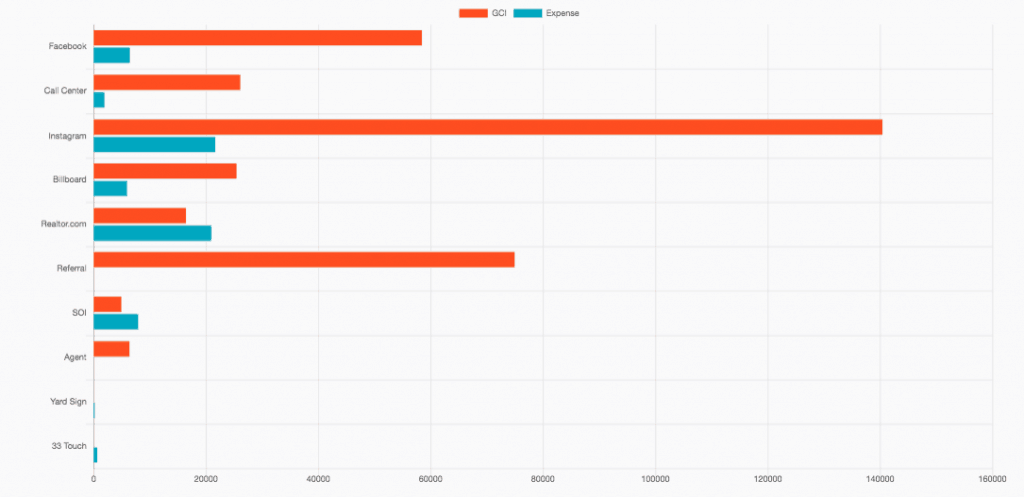Paid advertising is a time-proven method to growing your real estate business. It's a favorite for many of the real estate teams and brokerages I've worked with because:
- It's scalable. Once you establish profitable systems, you scale them up. If you know that throwing $1 into the machine creates $2, then you might as well throw $10,000 into the machine to see a $20,000 return.
- When done correctly, paid advertising won't just bring in leads and new clients—it can increase brand awareness and brand equity.
- It can be managed easily from an admin level and create massive value for the agents on your team or in your brokerage.
I can't tell you how many uber-successful teams I've worked with that use extensive ad budgets to dominate their market and attract top talent to their organization.
I've seen an equal number of struggling organizations who throw money at advertising simply because it seems like something they should do, without being able to prove their return. If you can't prove your return, you should assume you're losing money.
The difference in the teams dominating paid search and those wasting their money lies in 9 metrics. If you don't know these, you shouldn't be buying leads.
The 9 Metrics That Define Your Paid Advertising Return
See these 9 metrics in an easy to read table below, then take a look at why/how each of them can be tracked.

Leads generated: How many total leads came into your system from the specified lead source? Your CRM should give you a report on this.
Expense: How much did you spend on those leads? This usually comes from your accounting system or billing statements.
Cost Per Lead: Expense divided by leads generated gives you your cost per lead.
Closed Count: Of course, you'll want to know how many of each lead type you closed.
Volume Generated: How much volume was generated from the closing of those leads? (Bonus: you can also look at the average volume for each closing and compare to lead source, to get an idea of where the bigger deals are coming from)
GCI: What were the total commissions generated from these leads? (Bonus: Can you see which agents were proficient in closing which type of lead? What is the breakdown of leads closed by each agent on your team?)
ROI: Total expense divided by total GCI will give you a gross percentage return for each lead source. Make sure it's triple digits, but optimally you'll be seeing a 200%+ return that ensures you're covering closing expenses, agent splits, etc. and turning a profit for the entire organization.
Lead Cost Per Closing: What's the expense for each closing? You can get this by dividing expense by closed count. (Bonus: compare this with your average transaction closing costs or average split paid to agents to give you an idea of how profitable a lead source is. If I buy Facebook ads and it costs me $3000 in ads for each closing, my average transaction size on them creates $7500 in GCI, I pay my agents 50%, and I pay my transaction coordinator $350 for the file with a $350 transaction fee, am I generally profitable on this lead source? These are great questions to ask.)
Conversion Rate: This speaks to two things: the quality of lead and quality of your processes/agent performance. You'll want to compare this rate with your agent's prospecting numbers (calls, dials, appointments) to get an idea of why conversion rates may be low. Are they trash leads or are your agents not hustling enough?
You Don't Have To Waste Your Time Manually Calculating Lead Source ROI
Running reports like this on your own could take hours each time you want to take a look at the numbers. Keeping a running, real-time tally becomes a huge headache.
We've taken advice from top performing teams in building our lead source reports. It's easy to enter in your total # of leads and associated expenses into our system.

The lead source from each closing (or each hot lead you work with) will pull into our system automatically, so you don't have to go looking for it (we support this functionality for top CRM's such as Boomtown, CINC, FollowUp Boss, Contactually, and more).
We had one of the top designers in the country go out and build a stylish report that will show you the numbers in a manner that's pleasing to the eye.
All you need to do is connect your CRM, plug in some numbers, and you'll know right away which lead sources are giving you the best bang for your buck!
Not using Sisu yet? Schedule a demo with my team here.








.png)


